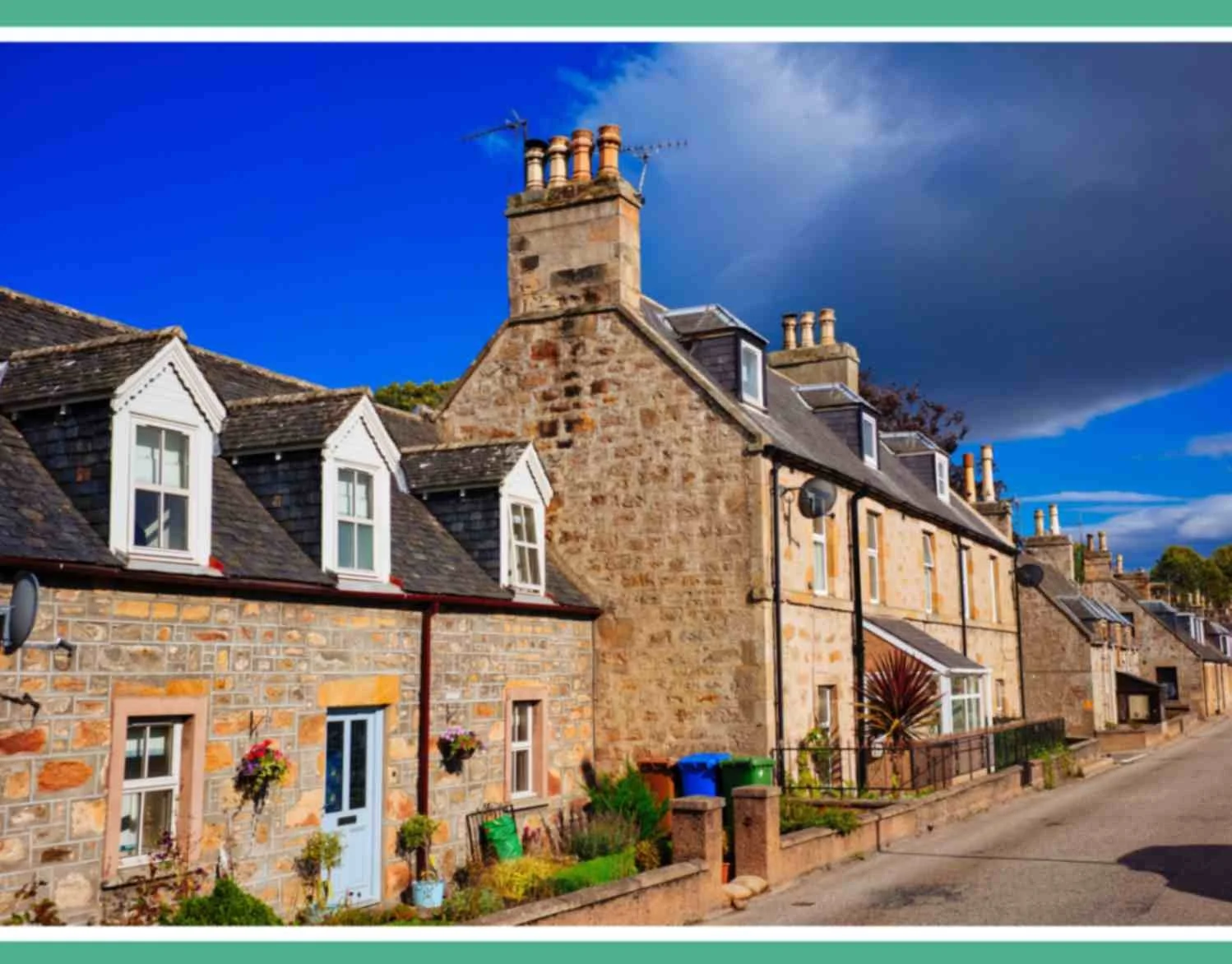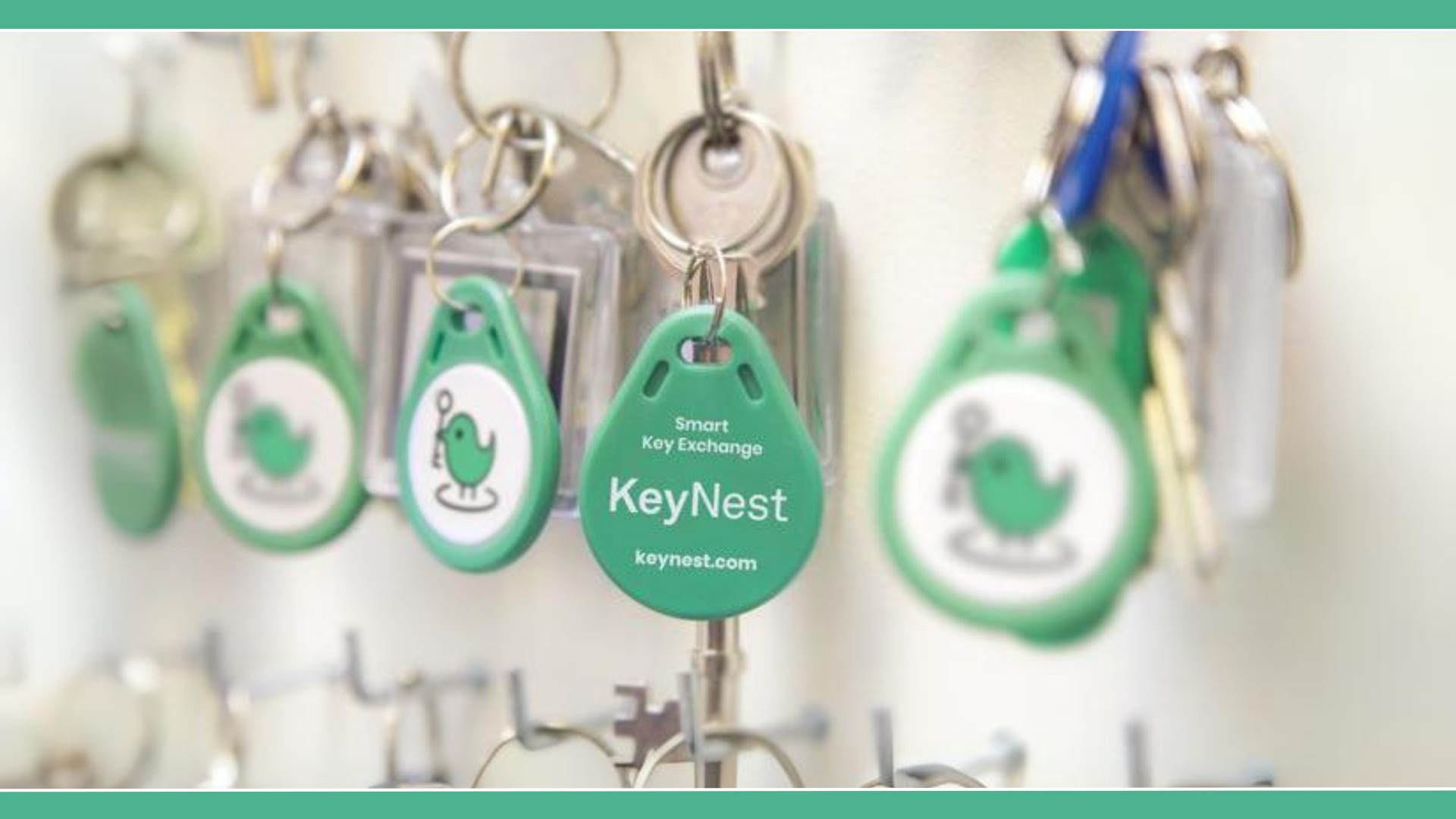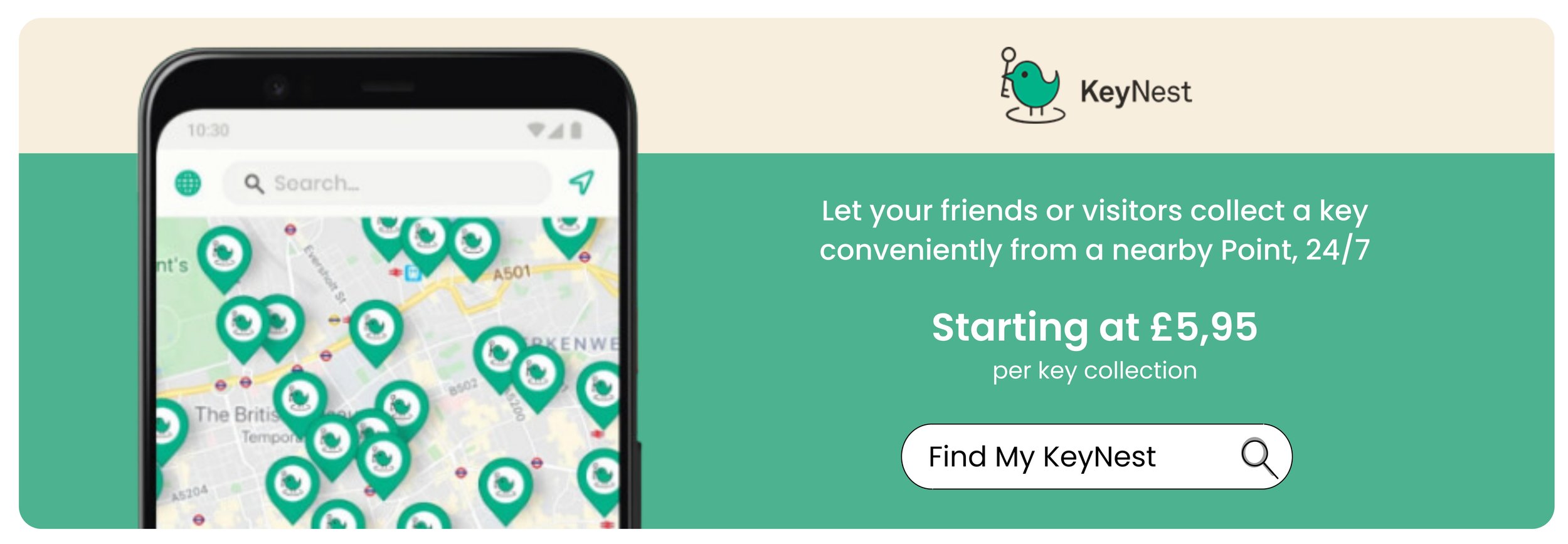Over 1500 key exchange locations nationwide
Airbnb & Short-Term Rental Let Licence Guide At Glasgow This 2025
Airbnb holiday let hosting in Glasgow has become more regulated in 2023, requiring all short-term rental stays to obtain a license under Scotland’s new licensing scheme. Property owner and hosts must meet specific safety standards, such as installing smoke alarms, carbon monoxide detectors, and conducting a fire risk assessment on their accommodations. Public liability insurance is also mandatory to cover guest-related incidents, and occupancy limits may be imposed by the council in accordance to their short-let rental regulations.
Zoning rules affect where rentals are allowed with flats impose strict scrutiny than detached homes, especially in conservation areas which balance the benefits of short-let rentals. Hosts need to be aware of the compliance with these rules of letting out their property by getting a licence is crucial to avoid fines or having your listing removed and be banned to continue to operate. To succeed, hosts should maintain all documentation, foster good relationships with neighbors, and ensure their listings highlight unique features like location or eco-friendly amenities.
Engaging with local host communities can provide support and insights into navigating the new regulations. While the requirements may seem complex, they aim to create a safer and fairer in the rental market. By staying informed and prepared, you can provide an exceptional experience for guests while adhering to Glasgow’s updated rules. Hosting in compliance with these guidelines ensures a rewarding and worry-free Airbnb journey.
Do You Need A Holiday Let License To Host In Glasgow?
Yes, starting in October 2023, all quick stay rental stay and short-term lets in Scotland, including Glasgow, require a license being granted under the new licensing scheme and laws and regulations. Hosts in the course of property management need to apply to their local council for approval in order to be active in booking platforms like Airbnb and Booking.com in the city. The process involves:
Property Safety Checks: Your vacation rental must apply for licence application and meet health and safety standards such as having functioning smoke alarms, a carbon monoxide detector for gas safety and a fire risk assessment to prevent maintenance issues during a traveller stay.
Public Liability Insurance: Rental owner or hosts must prove they have insurance to cover potential guest-related incidents or criminal offence.
Occupancy Limits: The council may impose restrictions and include occupancy regulations on the maximum occupancy of guests allowed on their entire properties.
Failure to obtain a license could result in hefty fines and the removal of your listing.
Risks Of Operating Short Term Let Without Legal Requirements
Running an Airbnb short-term let without meeting Glasgow’s legal requirements can lead to significant risks for hosts. First and foremost, failing to obtain a license can result in hefty fines, which could exceed the income you earn from hosting. Local councils are actively monitoring compliance, and unauthorized listings may be removed from Airbnb’s platform, cutting off your revenue stream entirely.
Beyond financial penalties, hosts who skip safety requirements, such as smoke detectors or fire risk assessments, expose themselves to liability in case of accidents or emergencies. If a guest is injured or a property is damaged, lacking public liability insurance could lead to costly legal disputes. Additionally, operating without approval in restricted zones may provoke complaints from neighbors, leading to potential investigations and further penalties.
Such actions can harm your reputation, both locally and on Airbnb’s platform, where negative feedback impacts visibility. Ignoring legal requirements could also jeopardize the credibility of quick stay rentals in Glasgow as a whole, potentially inviting stricter regulations.
To avoid these risks, it’s crucial to fully understand and comply with the legal framework before listing your property. By doing so, you protect your investment, reputation, and peace of mind while contributing positively to the Airbnb community.
Where Are Airbnb Rentals Allowed In Glasgow?
Zoning Laws regulations in Glasgow impost strict limit where you can host. Residential neighborhoods often face stricter rules, particularly in areas where housing availability is a concern.
Flats vs. Detached Homes: Flats (apartments) are subject to more scrutiny due to shared spaces and potential noise complaints. Detached homes generally face fewer restrictions.
Conservation Areas: Hosting in historically protected areas may require additional permissions.
Check Glasgow City Council's website or contact their planning department to confirm whether your property complies.
Tips For Navigating Airbnb Rules & Succeeding As A Host
Understanding the rules is one thing; succeeding as a host requires extra effort. Here’s how you can thrive under the 2023 regulations:
Keep Documentation Handy: Always have a copy of your license and proof of compliance with safety standards.
Communicate with Neighbors: A proactive approach can help ease concerns about noise or parking.
Optimize Your Listing: Highlight features like proximity to landmarks, eco-friendly amenities, and compliance with regulations to attract more guests.
Join Host Communities: Glasgow has active Airbnb host groups where you can share insights and learn from others.
Hosting on Airbnb in Glasgow in 2023 comes with responsibilities but also great opportunities. By staying informed and compliant, you can ensure a successful experience for yourself and your guests.
Short-Term Rental Registration
In Glasgow, hosts are required to register their property as a quick stay rental with the local authorities. This registration ensures that your rental stay complies with the necessary regulations and safety standards. It is essential to complete this process before listing your property on platforms like Airbnb.
Existing hosts are given a grace period until October 1, 2023, to submit their license applications. Anyone who operated a short-term let before October 1, 2022 can still accept bookings and guests until an application is determined, but must apply before the October 1, 2023 deadline. Owners who started operations after October 1, 2022 cannot begin trading until they receive their licence.
The licensing fees for hosts in Glasgow range from £125 to £400, as reported by Glasgow World. The exact price of the license is determined based on factors such as the maximum number of guests a property can accommodate and whether it is a primary or secondary letting. Any application to vary a licence would cost £75.
Source: https://www.glasgow.gov.uk/stl
To initiate the license application process, owners must gather the following documentation:
Planning Permission or Certificate of Lawfulness: Hosts are required to provide evidence to seek planning permission or a Certificate of Lawfulness for their property's use as a quick stay rental. This documentation ensures that the property meets the necessary regulations and requirements.
Floor/Layout Plan: A detailed floor or layout plan of the property should be submitted as part of the license application. This plan helps authorities assess the suitability of the property for holiday rental purposes.
Evidence of Operation as a Short-Term Let (STL) before October 1, 2022: Hosts must provide evidence showcasing that their property has been operating as a short-term let prior to October 1, 2022. This requirement helps distinguish existing hosts from new applicants.
Consent from Owner(s) (If the applicant is not the property owner): In cases where the applicant is not the owner of the property, they must obtain consent from the owner(s) to operate holiday rental. This consent serves as proof of authorization for the applicant to apply for the license.
Hosts can use this tool to check whether or not they need a licence, and which type of licence they require.
Taxes On Short-Let Rentals In Glasgow
Council Tax:
When providing holiday rental stays in Glasgow, hosts would need to check and are generally required to pay council tax on the property which ever term rental they fall in to. Even if you qualify for a reduction, council tax remains applicable to holiday term rental properties and their affordability. However, it's important to check with the local council for specific regulations and any potential exemptions that may apply to your situation.
Business Rates Exemption:
In some cases, hosts may be exempt and be allowed to continue to operate from council tax if they are liable for business rates on their quick stay rental property they specialise. Additional conditions like business rates are a form of taxation imposed on non-domestic properties used for commercial purposes. If yourholiday rental qualifies as a business property, you may be eligible for an tax reduction from council tax. It is recommended to verify this information with the local council or seek professional advice.
Tax-Free Allowance:
Regarding tax obligations on holiday rentals, there is a tax-free allowance provided by the government. If you are letting out residential accommodation in your primary residence, you can earn up to £7,500 annually tax-free. This allowance falls under the "Rent a Room" scheme, which is administered by the government. We would always recommend to note that regular rental income tax rules apply if you are renting out a second home or a property that is not your primary residence. For more details and specific guidelines, it is recommended to visit the government's official website or consult with a tax professional.
Please keep in mind that tax regulations and allowances can change over time. It's essential to check the latest information and guidelines from official government sources or consult with a tax professional to ensure compliance with current tax obligations for quick stay rentals in Glasgow.
Should I Apply Business Rates On My Short-Term Property In Glasgow?
The application of business rates on your short-term property in Glasgow depends on various factors, including the number of days in a year that you let it out. Business rates are a form of taxation imposed on non-domestic properties used for commercial purposes. Here are some considerations:
Primary Residence: If you are renting out your primary residence in Glasgow on a short-term basis for a limited number of days per year, it is less likely that business rates would apply. In such cases, the property is typically considered for residential use and subject to council tax rather than business rates.
Commercial Use: However, if you are consistently renting out your property for a significant number of days throughout the year and it is considered to be used for commercial purposes, business rates may come into play. The specific threshold for the number of days may vary, and it is essential to check with the local council or seek professional advice to determine whether your property qualifies for business rates.
Exemptions and Relief: There are instances where certain exclusions or relief may apply to business rates for quick stay rental properties. It is advisable to consult with the local council or a tax professional to understand if any elief schemes are applicable to your situation.
Given the complex nature of business rates and the varying circumstances of each quick stay rental property, it is recommended to reach out to the local council or seek professional advice to determine whether business rates apply to your specific property in Glasgow. They can provide you with accurate information based on the current regulations and guidelines.
Preparing For 2025: Changes In Airbnb License To Seek Planning Permission In Glasgow
As Glasgow’s short-term rental market continues to evolve, hosts should be prepared for potential updates to licensing requirements by 2025. While the current licensing scheme emphasizes safety and zoning compliance, Glasgow City Council is considering further measures to address housing shortages and community concerns.
These changes could include stricter occupancy limits, enhanced safety inspections, or additional fees for properties in high-demand areas. Hosts may also face tighter regulations in conservation zones or areas with significant housing pressures, as the government aims to balance tourism growth with local housing needs.
Moreover, the renewal process for Airbnb licenses is expected to require proof of continued compliance with all regulations. Hosts should maintain detailed records of safety checks, insurance updates, and guest interactions to streamline the renewal process. Failure to renew a license on time could lead to the suspension of your Airbnb listing.
Keeping an eye on council announcements and engaging with local host groups can help you stay informed about upcoming changes. Preparing early will not only ensure uninterrupted hosting but also strengthen your reputation as a responsible and compliant host in Glasgow’s evolving short-term rental landscape.
While the exact updates to licensing requirements for Airbnb and short-term rentals in Glasgow by 2025 are not yet confirmed, several potential changes could arise based on current trends and discussions in the short-term rental industry:
1. Stricter Zoning Regulations
Authorities may enforce stricter zoning rules to limit short-term rentals in residential or high-demand areas, particularly where housing shortages persist. Conservation zones and areas with noise complaints could face additional restrictions.
2. Renewal Requirements
License renewals might require more frequent safety inspections, updated insurance policies, and proof of compliance with occupancy and maintenance standards.
3. Higher Licensing Fees
Fees for acquiring and renewing licenses may increase to cover administrative costs and discourage casual or non-compliant hosts from entering the market.
4. Enhanced Safety and Accessibility Standards
New requirements may emerge, such as stricter fire safety measures, childproofing, or accessibility standards to ensure properties are safer for all guests.
5. Limits on Night Stays
Authorities may implement caps on the number of nights a property can be rented annually to protect long-term housing availability.
6. Mandatory Host Training or Certifications
Hosts could be required to complete training or obtain certification to ensure they understand local laws, safety protocols, and hospitality standards.
7. Data Reporting Requirements
Hosts might be asked to report rental activity, income, or guest details to local authorities for better regulatory oversight.
8. Platform Accountability
Airbnb and similar platforms may face pressure to verify host compliance before listings go live or impose penalties for hosting without a valid license.
9. Sustainability Initiatives
As environmental concerns grow, regulations could encourage or mandate eco-friendly practices, such as energy-efficient appliances or recycling provisions.
10. Community Impact Assessments
Before granting or renewing a license, councils may evaluate the potential impact on the local community, including neighbor feedback and housing availability.
Staying informed through Glasgow City Council updates and engaging with local host groups will be crucial for anticipating and adapting to these potential changes.
In Retrospect
Glasgow's 2023 Airbnb regulations may feel overwhelming initially, but they are designed to improve the short-term rental experience for both hosts and guests. By adhering to the licensing requirements, you demonstrate professionalism and build trust with travelers.
Following safety standards not only ensures compliance but also prioritizes the well-being of your guests, enhancing their overall experience. Understanding zoning restrictions and adapting to local rules will prevent potential conflicts with authorities and neighbors. Successful hosts know the value of maintaining strong community relationships and addressing concerns proactively.
Optimizing your listing with unique selling points, like proximity to landmarks or family-friendly features, can help you stand out in a competitive market. As you embrace these regulations, you'll find that hosting can still be an enjoyable and lucrative venture. Remember, a well-prepared host is a successful host—so take the time to get it right, and you'll thrive in Glasgow's Airbnb community.
Discover KeyNest Solution For Smart Key Management In Glasgow
Are you a landlord or host in Glasgow seeking a hassle-free and time-saving solution for key management and check-ins? Look no further than KeyNest Points, the innovative service designed to simplify the process for you and your guests.
By entrusting your keys to KeyNest, you can ensure that guests, cleaners, or contractors have a secure and convenient way to collect them
Since its inception, KeyNest has revolutionized how property access is handled, eliminating the need for in-person handovers and providing an efficient alternative to traditional lockboxes or smart locks. Trusted by property managers across the globe, KeyNest's robust system ensures keys are always secure while maintaining accessibility.
KeyNest integrates seamlessly with popular booking platforms, enabling automated key handovers and instant notifications when keys are collected or returned. Whether managing one property or a portfolio of rentals, KeyNest is a reliable partner for managing access, saving time, and improving guest experiences.
KeyNest offers you a convenient service for storing and exchanging your property keys. You can drop off a key at any of the 7,000+ locations in our network, so there’s one such Point located next to your property
Guests, cleaners or contractors can then collect the key securely from a KeyNest Point or KeyNest Locker which is usually open 24/7. You'll be notified each time the key is picked up or returned, and you can even customize check-in and check-out times.
KeyNest has an ever-expanding global network of locations located just minutes from your property. To find out more you can contact us.
Neil Beltran Dec 7 2024






